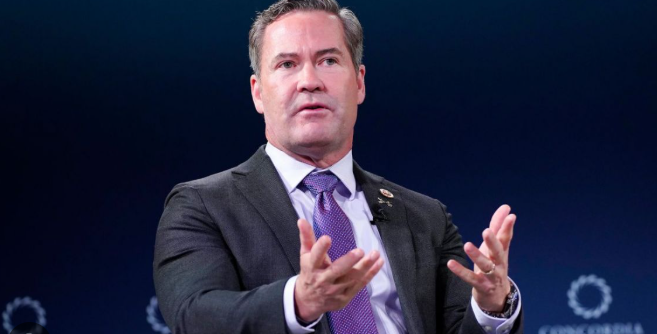The nine-page letter from Carole Ghosn to watchdog group Human Rights Watch says that the former Nissan chairman has been held under “harsh physical conditions” since his arrest nearly two months ago on suspicion of financial crimes.
“No one should be forced to endure what my husband faces every day,” Carole Ghosn writes in the letter, which urges Human Rights Watch to press the Japanese government for criminal justice reforms.
Carole Ghosn claims in the letter that her husband is being held in an unheated cell, where the lights remain on around the clock. She says he is allowed to bathe only two to three times per week.
The car industry legend has been in jail in Tokyo since he was first arrested on November 19. His son recently expressed concern about his health, saying his father had lost 22 pounds in detention.
CNN could not immediately verify the claims in the letter, which was provided by Carlos Ghosn’s lawyers. The letter is undated, but references to the length of Ghosn’s detention suggest it was sent in late December.
Officials in Japan did not respond to requests for comment sent outside normal business hours, but the country’s Foreign Ministry told Reuters that the executive’s rights were assured.
“He is treated under the appropriate procedure, assuring fundamental human rights of individuals and undergoing strict judicial examination in according with relevant domestic laws of Japan,” spokesperson Natsuko Sakata wrote in an email to the news agency.
Ghosn could be in prison for a year
Carlos Ghosn was indicted for the second time last week, charged with under-reporting his income between 2015 and 2018 and misusing his position at Nissan by transferring personal investment losses to the Japanese carmaker.
He was first indicted in December on allegations of under-reporting his income by tens of millions of dollars between 2010 and 2015.
Carlos Ghosn has strongly denied the allegations against him, calling them “meritless and unsubstantiated” in a court hearing earlier this month.
The auto industry leader’s legal team applied for bail last Friday. That application was rejected by the Tokyo District Court on Tuesday. Ghosn’s lawyers fear prosecutors will keep him in jail until a trial begins, which they say could take six months to a year.
A judge in the Tokyo District Court said during the hearing that keeping Ghosn in jail during the investigation was justified because he posed a flight risk and could conceal evidence. His lawyers dispute those claims.
‘Nearly free rein’
The case has sparked questions about the Japanese justice system and the ability of prosecutors to keep suspects in jail for extended periods of time while investigations continue.
Visits from lawyers, family and friends are strictly controlled by prosecutors in Japan, making it difficult for suspects to establish a defense or give their side of the story to the media.
Carole Ghosn highlighted those issues in her letter, writing that her husband is not even allowed to keep photographs of his loved ones in his prison cell.
“In stark contrast, the prosecutors have nearly free rein to interrogate him whenever they please, often late in the evenings and even on holidays and Sundays when the detention center is closed to his attorneys,” she wrote.
“For hours each day, the prosecutors interrogate him, browbeat him, lecture him, and berate him, outside the presence of his attorneys, in an effort to extract a confession,” she added.
Health concerns
Carlos Ghosn’s spectacular downfall following his arrest in November has shaken the international auto industry and strained the alliance he built between Nissan (NSANY), Renault (RNSDF) and Mitsubishi Motors (MMTOF).
Since his arrest, Carlos Ghosn has been removed as chairman by Nissan and Mitsubishi Motors. Renault and the French government have stood by him, presuming him innocent until proven otherwise.
This is not the first time the executive’s wife has spoken out about his detention. She released a statement last week in response to reports that he had developed a fever in jail, saying she was “fearful and very worried” for his health.
In her letter to Human Rights Watch, Carole Ghosn called for a major overhaul of Japan’s pretrial detention practices.
“No human being should be indefinitely detained under conditions so harsh that their only plausible purpose is to coerce a confession,” she wrote.








Leave a Reply